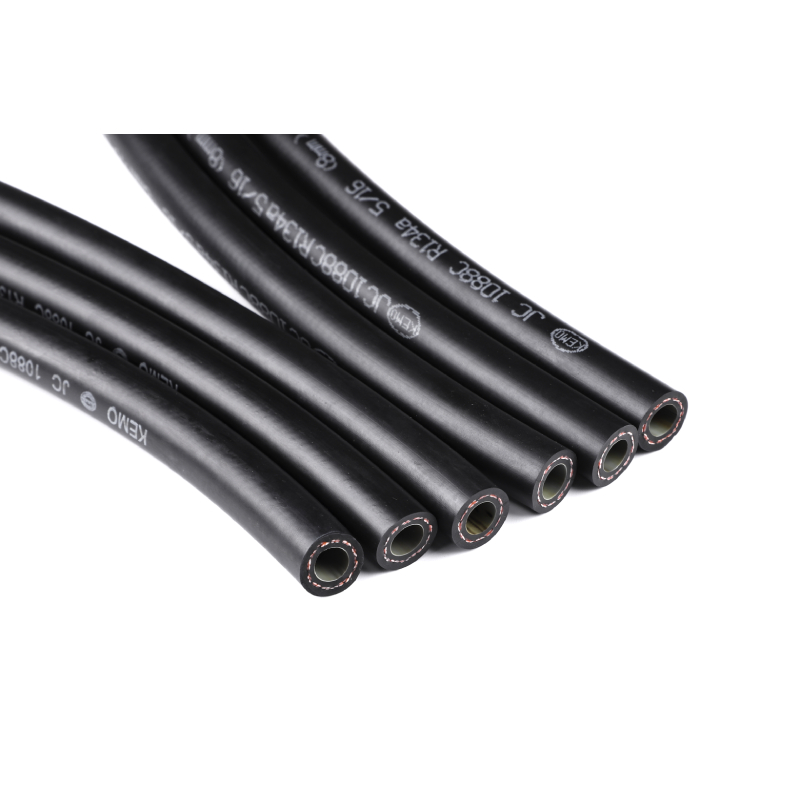Understanding the Importance of Diesel Hose Pipe in Automotive Fuel Delivery Systems
Aug . 10, 2024 10:50 Back to list
Understanding the Importance of Diesel Hose Pipe in Automotive Fuel Delivery Systems
Understanding Diesel Hose Pipes Essential Components in Fuel Delivery Systems
In the realm of industrial equipment and automotive technology, the importance of a reliable fuel delivery system cannot be overstated. Among the critical components of this system is the diesel hose pipe, a vital piece of equipment that plays a pivotal role in the transfer of diesel fuel from storage tanks to engines and machinery. With the increasing demand for efficient fuel management in transportation and heavy machinery, understanding the characteristics, applications, and maintenance of diesel hose pipes has become essential for various industries.
Composition and Design
Diesel hose pipes are specifically designed to handle the unique properties of diesel fuel. Typically made from durable materials such as rubber, thermoplastics, or reinforced fabric, these hoses are engineered to withstand varying temperatures and pressures. Their construction includes layers that provide resistance to oil, abrasion, and environmental factors. A quality diesel hose pipe will also feature a robust outer layer to guard against physical damage, ensuring longevity and reliability.
The internal diameter of these hoses can vary, allowing for a range of flow rates to suit different applications. A well-chosen hose diameter is crucial to avoiding fuel delivery issues, such as blockages or excessive pressure drops, which can hinder engine performance.
Applications and Importance
Diesel hose pipes have a range of applications across several sectors. In the transportation industry, they are extensively used in trucks and buses, facilitating the smooth transfer of diesel fuel to engines. Construction and agricultural machinery also rely heavily on diesel hose pipes to ensure machinery operates efficiently. In addition, refueling stations utilize diesel hoses for safe and effective dispensing of fuel, underscoring the versatility of this component.
diesel hose pipe

Furthermore, diesel hose pipes are critical in maintenance and repair contexts. When servicing diesel engines or machinery, having high-quality hoses ensures that the fuel system functions properly, reducing the risk of leaks or failures that could lead to costly downtime.
Maintenance and Safety Considerations
Regular maintenance of diesel hose pipes is essential to avoid potential hazards and ensure optimal performance. Users should routinely inspect hoses for signs of wear, such as cracks or swelling, which may indicate that the hose is nearing the end of its service life. Additionally, connections should be checked for leaks, as even minor leaks can lead to fuel waste, environmental contamination, and safety risks.
Another key aspect is the storage of diesel hoses. It is advisable to keep them in a cool, dry place, away from direct sunlight and extreme temperatures, which can degrade the material over time. Additionally, ensuring that hoses are not kinked or compressed during storage will help preserve their integrity.
Conclusion
In conclusion, diesel hose pipes are indispensable components of fuel delivery systems in various industries. Their ability to withstand the rigors of transporting diesel fuel makes them a critical asset in ensuring the efficiency and safety of automotive and industrial applications. With proper selection, maintenance, and care, these hoses can significantly enhance operational efficiency and reduce the risk of equipment failure. As technology continues to evolve, ongoing advancements in hose materials and designs promise to further improve the performance and safety of diesel delivery systems, making them even more integral to the future of transportation and machinery operation.
